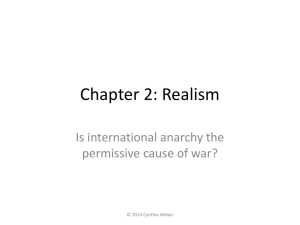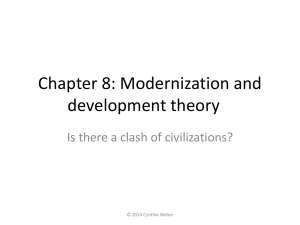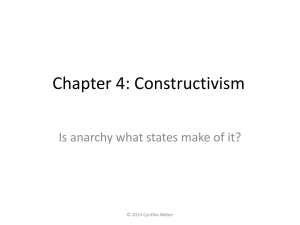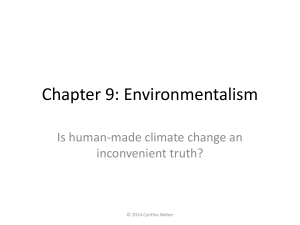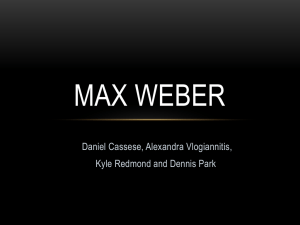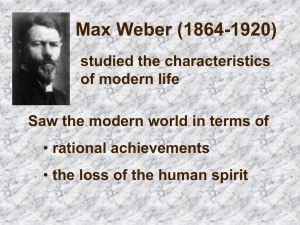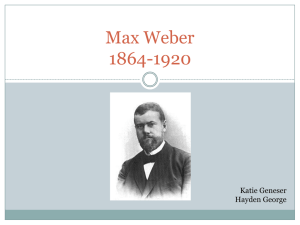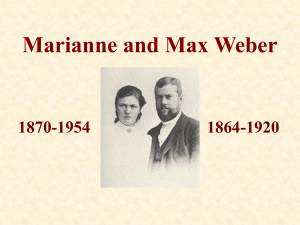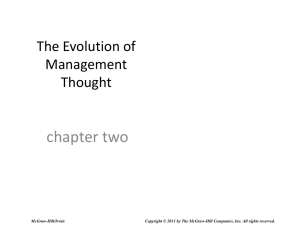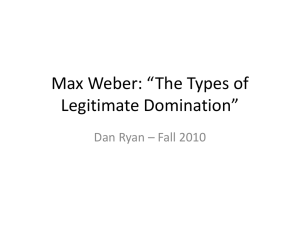Chapter 3: Idealism
advertisement
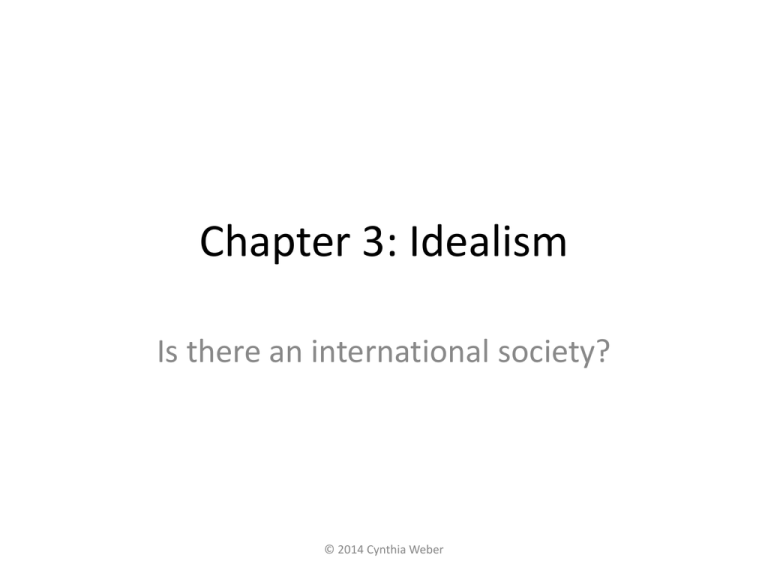
Chapter 3: Idealism Is there an international society? © 2014 Cynthia Weber Learning aims: Understand the “international society myth” Understand how the “domestic analogy” functions To understand the differences between Kegley’s and Waltz’s explanations for war To critically interrogate the “international society myth” as an extension of US domestic society through Independence Day (1996) © 2014 Cynthia Weber Last week Myth: “international anarchy is the permissive cause of war” Key concepts: Sovereign states, human nature, international anarchy “Fear is what is always missing from Waltz’s theory” © 2014 Cynthia Weber (Neo) Idealism Flashcard Key thinkers: Woodrow Wilson & Charles Kegley Concepts: International society Communication “Domestic analogy” Leadership Myth: “there is an international society” © 2014 Cynthia Weber How do Waltz and Kegley differently characterize international politics? Waltz Kegley • International politics is anarchical, and anarchy is the permissive cause of war • Therefore, war and conflict are ultimately located at the international level and cannot be eliminated because anarchy cannot be eliminated International politics can be reorganized around international society rather than international anarchy, potentially eliminating problems like war and conflict without replacing international anarchy with international hierarchy (world government) © 2014 Cynthia Weber What can realism explain and what can’t realism explain? (table 3.2) Realism can explain Realism cannot explain Cold War conflictual activities among sovereign nation-states, e.g.: “lust for power” “appetite for imperial expansion” “struggle for hegemony” “superpower arms race” “obsession with national security” Post-Cold War realities of cooperation among sovereign nation-states, e.g.: “march of democracy” “increase in liberal free trade agreements” “renewed role of the United Nations” “proliferation of arms control agreements” “international humanitarianism” Source: Kegley, 1993, 1995 © 2014 Cynthia Weber How does Kegley enact the “domestic analogy”? (figure 3.4) People Government People Government International Society © 2014 Cynthia Weber People Government Theory activity • How can Kegley be so optimistic about postCold War politics and is that optimism still valid, twenty years on? • Two (sets of) groups – US and Russia • Two timeframes – 1993 and 2013 • Two scenarios – Environmental disaster happening in Vladivostok with implications for Alaska in particular – Civil war and possible humanitarian intervention in an oil rich Middle East country © 2014 Cynthia Weber Independence Day The heroes in Independence Day (table 3.4) Hero What makes him heroic US President Bill Whitmore This President cannot tell a lie and therefore symbolizes the incorruptibility of communication. As such, he is able to conceive of a morally just plan to beat the aliens and to mobilize a moral society through pure communication David, the computer trouble-shooter for a satellite television company He is a morally good man who understands the technical workings of impure/alien communication well enough to disable them. He does this by planting a virus in the alien computer Steve, the US military fighter pilot A man of courage and adventure who actively unites goodness of purpose (the President’s agenda) with technical know-how (David’s plan to plant the virus) by flying an alien craft into the mother-ship Russell, the Vietnam veteran who is now a drunken cropduster and who claims to have been abducted by aliens years ago Russell sacrifices himself for his children and the rest of humanity by carrying out a suicide mission that destroys an alien ship. He proves that he is a good man who was always speaking the truth but who was just misunderstood © 2014 Cynthia Weber Independence Day What is typical in the world of Independence Day (box 3.1) What is deviant in the world of Independence Day (box 3.2) - Good people do good deeds in good organizations - Bad aliens do bad deeds not because they are badly organized - Bad things follow from impaired but because their communication is impaired and because they are communication morally corrupt - Human beings are morally - Alien communication is progressive corrupted and corrupting - Aliens are not morally progressive © 2014 Cynthia Weber How US leadership is extended in Independence Day (figure 3.5) US Other states © 2014 Cynthia Weber “In Independence Day, there is no international society. There appears to be an international society because US domestic society is extended globally” (Weber, 2013) Film activity: International Society in Independence Day and Mars Attacks! Aim: Being able to read Independence Day as a neoidealist script by analysing it alongside Mars Attacks! • Two (sets of) groups, one watching Independence Day and one watching Mars Attacks! • Compare the two films by paying attention to what they say about progress, learning and communication combined with “fear” Aliens I.D M.A US I.D Progress Learning Communication © 2014 Cynthia Weber International Community M.A I.D M.A Next week: Constructivism Film: Wag the Dog Practice, seduction and dead authorship Is anarchy what states make of it? © 2014 Cynthia Weber
